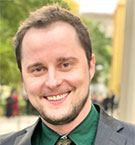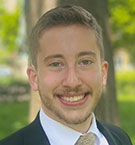Division of Neurotherapeutics
Contact Information
Division of Neurotherapeutics
149 13th Street, 10th Floor
Charlestown,
MA
02129
Explore This Research Lab
Our focus is on neurotherapeutic interventions for severe, treatment-resistant psychiatric illnesses. Currently, we focus in particular on obsessive-compulsive disorder, mood, and anxiety disorders but our focus is continually expanding.
Our research spans mechanistic studies, clinical trials and device-based interventions employing a variety of techniques, including neuroimaging and electrophysiology. We also provide clinical services and surgical treatments for psychiatric illness.
Our work utilizes functional and structural magnetic resonance imaging (fMRI), positron emission tomography (PET), electroencephalography (EEG), magnetoencephalography (MEG), transcranial magnetic stimulation (TMS), transcranial focused ultrasound pulsation (tFUS), vagus nerve stimulation (VNS), ablative limbic system procedures, and deep brain stimulation (DBS) to further understanding of psychiatric illness and treatment.
Research Projects
Transformative Restoration of Affective Networks by Systematic, Function-oriented, Real-time Modeling and Deep Brain Stimulation (TRANSFORM DBS)
This multi-year integrated translational neuro-engineering project proposes to co-develop a new deep brain stimulation (DBS) system that actively senses a patient's brain activity, delivers electrical stimulation, and adjusts that stimulation in real time based on the brain's electrical response. These "closed loop" systems offer tremendous potential for bringing new hope to patients living with severe mental illness, especially particularly post-traumatic stress disorder (PTSD), depression, anxiety and addiction.
TRANSFORM DBS hopes to create a new generation of medical devices that actively sense a patient's brain activity, deliver electrical stimulation, then adjust that stimulation in real time based on the brain's electrical response. These "closed loop" systems offer tremendous potential for bringing new hope to patients living with severe mental illness. Learn More
EMOTE-DBS: ON/OFF Stimulation, Reward Motivation, and Impulsivity in Patients with Deep Brain Stimulators
While past studies have been successful in identifying functional and neurochemical correlates of individual differences in reward motivation and impulsivity, assessment of causal mechanisms has remained elusive due to the inherent limitations of human neuroscience methods. Here, we test the causal role of human mesolimbic circuitry in reward motivation and impulsivity by examining a cohort of patients undergoing deep brain stimulation (DBS) within the ventral striatum. We examine behavior on and off stimulation across a range of tasks that index different forms of learning and motivation.
The long-term goal of this line of research is to help identify the neural circuitry underlying motivation for positive experiences, so as to better understand the neurobiology of anhedonia and motivational deficits found across numerous psychiatric patient populations.
High Resolution MRI in Cingulotomy and Capsulotomy Patients
The purpose of this study is to examine patterns of connection and activation in brain regions of patients who undergo anterior cingulotomy or anterior capsulotomy for treatment of major depressive disorder (MDD) or obsessive-compulsive disorder (OCD). The purpose of this investigation is to use high resolution MRI, specifically diffusion tensor imaging (DTI), as well as resting state MRI, to look at the connection patterns in patients who have been treated with cingulotomy or capsulotomy for MDD or OCD, as compared to healthy controls.
Integrated Information Theory of Consciousness: Investigation of Surgical Interventions for Psychiatric Disorders
Current measures of human consciousness rely on self-report or behavioral responses from patients. These measures may not accurately uncover covert consciousness, i.e. patients who are in minimally conscious states. The Integrated Information Theory (IIT) of consciousness posits that the nature and complexity of the brain’s response to external stimuli can differentiate between different states of consciousness. This theory leads to a Perturbational Complexity Index (PCI), a quantitative measure of human consciousness.
The purpose of this multi-site study is to investigate the psychometric properties of PCI in healthy individuals and extend this work in patients who have undergone psychiatric surgical interventions. We will use Transcranial Magnetic Stimulation (TMS) to perturb the brain and electroencephalography (EEG) to record the complexity of the brain's response. We will later investigate if ablations (such as cingulotomies and capsulotomies) in patients affect PCI values.
Neural Correlates of the Consciousness of Fear
The purpose of this study is to investigate brain activity, behavioral reports, and psychophysiological responses associated with the conscious experience of fear. We will administer Low Intensity Focused Ultrasound Pulsation (LIFUP) or transcranial Focused Ultrasound (tFUS) as a neuromodulatory tool to the amygdala to probe its role in the feeling of fear. This study will enable us to potentially differentiate between subjective and objective measures of the anticipation and experience of fear. We will also explore the ability of LIFUP/tFUS to change a core emotion.
Clinical Feasibility of Low Intensity Focused Ultrasound Pulsation for the Treatment of Generalized Anxiety Disorder
While pharmacological treatments and psychotherapy are currently available for anxiety, the average response rates can be around 50-55%. In this multi-site study, we are investigating the feasibility of using LIFUP or tFUS for treatment-resistant Generalized Anxiety Disorder. This study involves fMRI, behavioral tasks, and psychophysiological measures. This study may identify a novel, non-invasive, neuromodulatory treatment option for individuals with Generalized Anxiety Disorder who have not benefited from existing treatments.
Neuromodulation of Ventral Striatum with Low Intensity Focused Ultrasound Pulsation
Currently, Deep Brain Stimulation (DBS) of the ventral capsule/ventral striatum (VC/VS), has been FDA approved for treatment-resistant Obsessive-Compulsive Disorder (OCD). DBS is an invasive form of brain stimulation which requires neurosurgery. This study investigates the use of a new form of non-invasive stimulation, LIFUP or tFUS, which has the ability to target deeper subcortical regions such as the VC/VS. We will use LIFUP/tFUS of the VC/VS in healthy individuals to first identify optimal stimulation parameters and later apply these to individuals with treatment-resistant OCD.
Transdiagnostic Treatment of Anxiety and Bipolar I Disorder
Currently in the analysis stage, this project seeks to investigate the feasibility and acceptability of transdiagnostic cognitive behavioral therapy with the Unified Protocol in treating a full range of anxiety and unipolar mood disorders in individuals with BP-I disorder and comorbid anxiety.
Further, the present study uses fcMRI to explore potential biomarkers of individual treatment response to this approach. By applying a transdiagnostic approach to the treatment of patients with bipolar disorder, this study may offer the possibility of treating bipolar disorder and comorbid anxiety by using a single psychosocial treatment protocol, providing a unique opportunity to investigate whether a transdiagnostic approach is also a feasible approach to treating bipolar disorder.
fMRI on the Neural Correlates of the Consciousness of Fear
The purpose of this study is to investigate the neural correlate relating to fear and how activation in these regions covaries with self-report levels of fear and galvanic skin response. In conjunction with fMRI and experimental tasks, this study also looks at the brain anatomy in patients other than the amygdala that contributes to the feeling of fear.
Our Team
-
![]()
- Director, Division of Neurotherapeutics, Department of Psychiatry
-
![]()
Joan Camprodon-Gimenez, MD, PhD, MPH
- Chief, Division of Neuropsychiatry
- Director, Transcranial Magnetic Stimulation (TMS) clinical service
- Director, Laboratory for Neuropsychiatry & Neuromodulation
-
![]()
- Associate Professor in Psychiatry
- Director of the MGH Ketamine Clinic
- Psychiatrist at the Depression Clinical and Research Program

Postdoctoral Fellows
 |
|
Clinical Research Coordinators
 |
|
 |
|
Former Members
Afsana Afzal
Amanda Arulpragasam
M. Taha Bilge, PhD
Ben Borron
Lindsay Carlson
Andrew Corse
Amanda Duffy
Julia Felicione
Anna Gilmour
Aishwarya Gosai
Chao Gu
Emily Hahn
Ashley Hayden
Anish Kanabar
Brian Kochanowski
Marta Migó
Lindsay Rauch
Alex Rockhill
Alexandra Rodman
Kendra Simpson
Alik Widge
Karianne Sretavan Wong
Sam Zorowitz
Publications
See publications
Fontenelle LF, Oldenhof E, Eduarda Moreira-de-Oliveira M, Abramowitz JS, Antony MM, Cath D, Carter A, Dougherty D, Ferrão YA, Figee M, Harrison BJ, Hoexter M, Soo Kwon J, Küelz A, Lazaro L, Lochner C, Marazziti D, Mataix-Cols D, McKay D, Miguel EC, Morein-Zamir S, Moritz S, Nestadt G, O'Connor K, Pallanti S, Purdon C, Rauch S, Richter P, Rotge JY, Shavitt RG, Soriano-Mas C, Starcevic V, Stein DJ, Steketee G, Storch EA, Taylor S, van den Heuvel OA, Veale D, Woods DW, Verdejo-Garcia A, Yücel M. A transdiagnostic perspective of constructs underlying obsessive-compulsive and related disorders: An international Delphi consensus study. Aust N Z J Psychiatry. 2020 May 04; 4867420912327. PMID: 32364439.
Testo AA, Felicione JM, Ellard KK, Peters AT, Chou T, Gosai A, Hahn E, Shea C, Sylvia L, Nierenberg AA, Dougherty DD, Deckersbach T. Neural correlates of the ADHD self-report scale. J Affect Disord. 2020 Feb 15; 263:141-146. PMID: 31818770.
Chou, T., Hooley, J.M. & Camprodon, J.A. Transcranial Direct Current Stimulation of Default Mode Network Parietal Nodes Decreases Negative Mind-Wandering About the Past. Cogn Ther Res 44, 10–20 (2020).
Provenza NR, Paulk AC, Peled N, Restrepo MI, Cash SS, Dougherty DD, Eskandar EN, Borton DA, Widge AS. Decoding task engagement from distributed network electrophysiology in humans. J Neural Eng. 2019 08 16; 16(5):056015. PMID: 31419211.
Zorowitz S, Rockhill AP, Ellard KK, Link KE, Herrington T, Pizzagalli DA, Widge AS, Deckersbach T, Dougherty DD. The Neural Basis of Approach-Avoidance Conflict: A Model Based Analysis. eNeuro. 2019 Jul/Aug; 6(4). PMID: 31346001.
Guerin B, Angelone LM, Dougherty D, Wald LL. Parallel transmission to reduce absorbed power around deep brain stimulation devices in MRI: Impact of number and arrangement of transmit channels. Magn Reson Med. 2020 01; 83(1):299-311. PMID: 31389069.
Yousefi A, Basu I, Paulk AC, Peled N, Eskandar EN, Dougherty DD, Cash SS, Widge AS, Eden UT. Decoding Hidden Cognitive States From Behavior and Physiology Using a Bayesian Approach. Neural Comput. 2019 09; 31(9):1751-1788. PMID: 31335292.
Amidi Y, Paulk AC, Dougherty DD, Cash SS, Widge AS, Eden UT, Yousefi A. Continuous Prediction of Cognitive State Using A Marked-Point Process Modeling Framework. Conf Proc IEEE Eng Med Biol Soc. 2019 07; 2019:2933-2938. PMID: 31946505.
Dougherty DD. Will Deep Brain Stimulation Help Move Precision Medicine to the Clinic in Psychiatry? Biol Psychiatry. 2019 05 01; 85(9):706-707. PMID: 30999984.
Widge AS, Zorowitz S, Basu I, Paulk AC, Cash SS, Eskandar EN, Deckersbach T, Miller EK, Dougherty DD. Deep brain stimulation of the internal capsule enhances human cognitive control and prefrontal cortex function. Nat Commun. 2019 04 04; 10(1):1536. PMID: 30948727.
Basu I, Robertson MM, Crocker B, Peled N, Farnes K, Vallejo-Lopez DI, Deng H, Thombs M, Martinez-Rubio C, Cheng JJ, McDonald E, Dougherty DD, Eskandar EN, Widge AS, Paulk AC, Cash SS. Consistent linear and non-linear responses to invasive electrical brain stimulation across individuals and primate species with implanted electrodes. Brain Stimul. 2019 Jul - Aug; 12(4):877-892. PMID: 30904423.
Ellard KK, Gosai AG, Bernstein EE, Kaur N, Sylvia LG, Camprodon JA, Dougherty DD, Nierenberg AA, Deckersbach T. (2018). Intrinsic functional neurocircuitry associated with treatment response to transdiagnostic CBT in bipolar disorder with anxiety. Journal of Affective Disorders.
Deckersbach T, Peters AT, Shea C, Gosai A, Stange JP, Peckham AD, Ellard KK, Otto MW, Rauch SL, Dougherty DD, Nierenberg AA. (2018). Memory performance predicts response to psychotherapy for depression in bipolar disorder: A pilot randomized controlled trial with exploratory functional magnetic resonance imaging. Journal of Affective Disorders.
Widge AS, Ellard KK, Paulk AC, Basu I, Yousefi A, Zorowitz S, Gilmour A, Afzal A, Deckersbach T, Cash SS, Kramer MA, Eden UT, Dougherty DD, Eskandar EN. (2017). Treating refractory mental illness with close-loop brain stimulation: Progress towards a patient-specific transdiagnostic approach. Experimental Neurology.
Taha Bilge M, Gosai AK, Widge AS. (2018). Deep Brain Stimulation in Psychiatry: Mechanisms, Models, and Next-Generation Therapies. Psychiatric Clinics of North America.
Dougherty DD, Chou T, Corse AK, Arulpragasam AR, Widge AS, Cusin C, Evans KC, Greenberg BD, Haber SN, Deckersbach T. (2016). Acute deep brain stimulation changes in regional cerebral blood flow in obsessive-compulsive disorder. Journal of Neurosurgery.
Widge, A. S., Zorowitz, S., Link, K., Miller, E. K., Deckersbach, T., Eskandar, E. N., & Dougherty, D. D. (2015). Ventral Capsule/Ventral Striatum Deep Brain Stimulation Does Not Consistently Diminish Occipital Cross-Frequency Coupling. Biological Psychiatry.
Widge, A. S., Arulpragasam, A. R., Deckersbach, T., & Dougherty, D. D. (2015). Deep brain stimulation for psychiatric disorders. Emerging trends in the social and behavioral sciences: An interdisciplinary, searchable, and linkable resource.
Widge, A.S., Deckersbach, T., Eskandar, E. N. & Dougherty, D. D. Deep Brain Stimulation for Treatment-Resistant Psychiatric Illnesses: What Has Gone Wrong and What Should We Do Next? Biological Psychiatry. 2015 Jun 10.
Widge, A. S., & Dougherty, D. D. (2015). Deep Brain Stimulation for Treatment-Refractory Mood and Obsessive-Compulsive Disorders. Current Behavioral Neuroscience Reports, 2(4), 187-197.
Nierenberg, A., Peters, A., Stange, J., Sylvia, L.G., Otto, M.W., Miklowitz, D.J., Dougherty, D.D., Deckerbach, T. Neural predictors of response to psychotherapy for depression in bipolar disorder. Bipolar Disorders. 17(47-47), 2015.
Makris, N., Rathi, Y., Mouradian, P., Bonmassar, G., Papadimitriou, G., Ing, W. I., ... & Dougherty, D. D. (2015). Variability and anatomical specificity of the orbitofrontothalamic fibers of passage in the ventral capsule/ventral striatum (VC/VS): precision care for patient-specific tractography-guided targeting of deep brain stimulation (DBS) in obsessive compulsive disorder (OCD). Brain imaging and behavior, 1-14.
Dougherty, D. D., Rezai, A. R., Carpenter, L. L., Howland, R. H., Bhati, M. T., O’Reardon, J. P., ... & Malone, D. A. (2014). A Randomized Sham-Controlled Trial of Deep Brain Stimulation of the Ventral Capsule/Ventral Striatum for Chronic Treatment-Resistant Depression. Biological psychiatry.
Malone, D. A., Dougherty, D. D., Rezai, A. R., Carpenter, L. L., Friehs, G. M., Eskandar, E. N., ... & Greenberg, B. D. (2009). Deep brain stimulation of the ventral capsule/ventral striatum for treatment-resistant depression. Biological psychiatry, 65(4), 267-275.
Corse, A. K., Chou, T., Arulpragasam, A. R., Kaur, N., & Cusin, C. (2013). Deep brain stimulation for obsessive-compulsive disorder. Psychiatric Annals,43(8), 351.
Kaur, N., Chou, T., Corse, A. K., Arulpragasam, A. R., Deckersbach, T., & Evans, K. C. (2013). Deep brain stimulation for treatment-resistant depression. Psychiatric Annals, 43(8), 358.
Department of Psychiatry
For 80 years, Mass General's Psychiatry Department has provided the highest quality patient care through pioneering research.
Advances in Motion
Advances in Motion highlights the latest breakthroughs, research and clinical trials from Mass General.
Support Psychiatry at Mass General
For 80 years we've provided the highest quality patient care, conducted pioneering research and educated professionals in the field.
Pioneering Neuroscience Research
As a world leader in medical discovery and patient care, Mass General Neuroscience brings together the expansive expertise and passion from our Psychiatry, Neurosurgery and Neurology Departments. Through Advances in Motion, we provide health care professionals with information about our latest breakthroughs, research and clinical advances.



